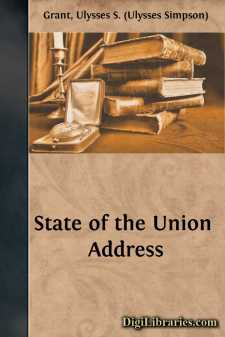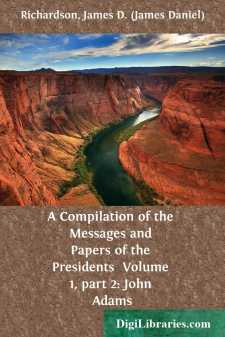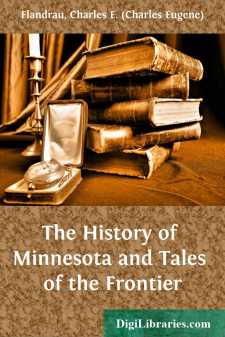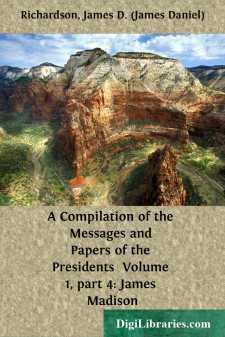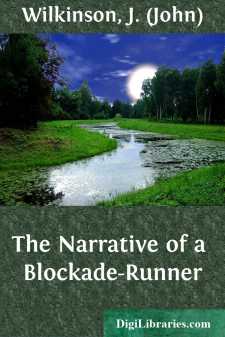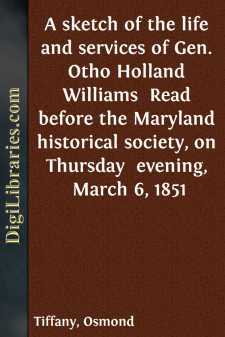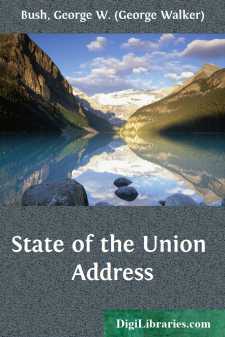History
- Africa 30
- Americas (North Central South West Indies) 50
- Ancient 68
- Asia 58
- Australia & New Zealand 8
- Canada 41
- Caribbean & West Indies 1
- Civilization 20
- Eastern Europe 12
- Europe 310
- Expeditions & Discoveries 60
- General 77
- Historical Geography 1
- Jewish 9
- Latin America 3
- Medieval 8
- Middle East 13
- Military 248
- Revolutionary 8
- Study & Teaching 5
- United States
- Western Europe 56
- World 13
United States Books
Sort by:
by:
Ronald Reagan
Mr. Speaker, Mr. President, distinguished Members of the Congress, honored guests, and fellow citizens: Today marks my first State of the Union address to you, a constitutional duty as old as our Republic itself. President Washington began this tradition in 1790 after reminding the Nation that the destiny of self-government and the "preservation of the sacred fire of liberty" is "finally...
more...
Mr. TOMPKINS said: Mr. Chairman: The charge is frequently made, that nothing but slavery occupies the attention of the National Legislature. That this charge is true to a great extent, that this subject is constantly kept before the country, and that there is constant excitement about it, is not the fault of the Republican party. In the first hour of the present session of Congress, it was thrust upon...
more...
To the Senate and House of Representatives: In coming before you for the first time as Chief Magistrate of this great nation, it is with gratitude to the Giver of All Good for the many benefits we enjoy. We are blessed with peace at home, and are without entangling alliances abroad to forebode trouble; with a territory unsurpassed in fertility, of an area equal to the abundant support of 500,000,000...
more...
John Adams John Adams was born on October 19 (old style), 1735, near Boston, Mass., in the portion of the town of Braintree which has since been incorporated as Quincy. He was fourth in descent from Henry Adams, who fled from persecution in Devonshire, England, and settled in Massachusetts about 1630. Another of his ancestors was John Adams, a founder of the Plymouth Colony in 1620. Entered Harvard...
more...
by:
William McKinley
To the Senate and House of Representatives: It gives me pleasure to extend greeting to the Fifty-fifth Congress, assembled in regular session at the seat of Government, with many of whose Senators and Representatives I have been associated in the legislative service. Their meeting occurs under felicitous conditions, justifying sincere congratulation and calling for our grateful acknowledgment to a...
more...
HISTORY OF MINNESOTA. It has been a little over fifty years since the organization of the Territory of Minnesota, which at its birth was a very small and unimportant creation, but which in its half century of growth has expanded into one of the most brilliant and promising stars upon the union of our flag; so that its history must cover every subject, moral, physical and social, that enters into the...
more...
James Madison James Madison was born in King George County, Va., on the 16th of March, 1751. He was the son of James Madison, the family being of English descent, and among the early settlers of Virginia. Was fitted for college by private tutors, and entered Princeton College in 1769, graduating in 1771; remained a year at college pursuing his studies. After this he returned to Virginia and began the...
more...
PREFACE. In deference to the judgment of two or three literary friends, I have entitled this, my first attempt at authorship, "The Narrative of a Blockade-runner." They do not agree with Shakspeare that "a rose by any other name would smell as sweet," to the reading public; nor that it is always advisable to call a thing by its proper name. It will be seen, however, by any reader who...
more...
by:
Osmond Tiffany
Mr. President: The events of the American Revolution are so nearly connected with our own times, that the actors in that great struggle seem yet to be to us as living men. We open the portal of the past century, and are with those who once like ourselves, breathed and thought, and who now, lie not silent or forgotten in the tomb. Their deeds live in our memory; their examples are glorious as of old:...
more...
Thank you very much. Mr. Speaker, Vice President Cheney, members of Congress, distinguished guests, fellow citizens: As we gather tonight, our nation is at war, our economy is in recession, and the civilized world faces unprecedented dangers. Yet the state of our Union has never been stronger. (Applause.) We last met in an hour of shock and suffering. In four short months, our nation has comforted the...
more...




